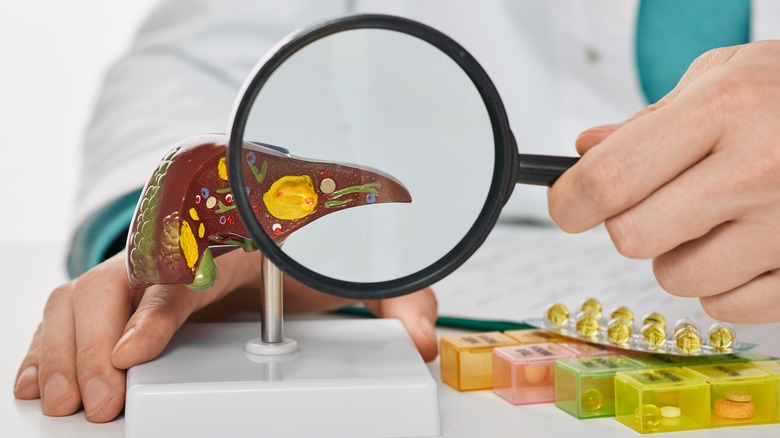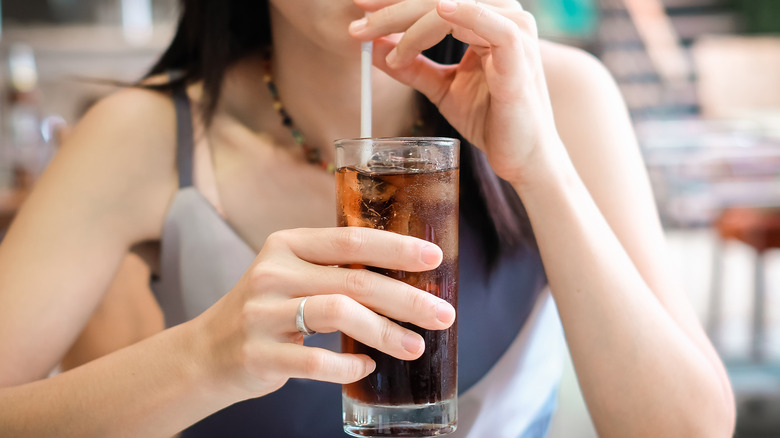The Worst Drink For Your Liver May Surprise You
Liver disease comes in many forms and can have serious complications. For example, hepatitis B is a major risk factor for cirrhosis and cancer, warns the American Liver Foundation. Heavy drinkers, on the other hand, are at high risk of fatty liver disease. What's more, about 8,000 women and 16,000 men in the U.S. die from liver cancer each year. Excessive alcohol use can cause or worsen these problems, but your diet and lifestyle play a role, too.
A sedentary lifestyle, for instance, may contribute to obesity, diabetes, and other chronic conditions, explains the World Health Organization. These disorders can lead to nonalcoholic fatty liver disease (NAFLD), a risk factor for liver cancer. On the positive side, it's possible to reverse NAFLD through lifestyle changes. Johns Hopkins Medicine recommends limiting added sugar and simple carbs, among other measures. Also, note that certain dietary supplements, including herbal remedies, can damage the liver over time.
This may come up as a surprise, but alcohol isn't the worst drink for your liver. Some beverages are even more harmful, especially when consumed regularly.
Avoid these beverages to prevent liver cancer
Liver cancer is commonly associated with obesity, smoking, and heavy drinking, notes the Centers for Disease Control and Prevention. Perhaps not surprisingly, sugar intake can further increase the risk of developing this condition, according to a new study presented at the 2022 Nutrition Live Online event (via the American Society for Nutrition). As it turns out, soda consumption can raise the odds of developing liver cancer by nearly 80%. "Replacing sugar-sweetened beverages with water, and non-sugar-sweetened coffee or tea could significantly lower liver cancer risk," explained lead researcher Dr. Longgang Zhao.
Previous studies confirm the relationship between sugary drinks and liver disease. For example, clinical evidence published in the Journal of Hepatology suggests that added sugar and fructose promote fat buildup in the liver, which may lead to NAFLD. High-fructose corn syrup (HFCS) is particularly harmful because of its inflammatory effects. As the scientists note, a diet high in HFCS may cause fatty liver disease in just eight to 24 weeks. A 2021 study published in the Journal of Clinical Investigation found that limiting sugar for two months can significantly reduce insulin levels and hepatic fat.
Beware that sugar comes in many forms, and it's not always easy to spot. Processed foods and soft drinks may contain fructose, sucrose, dextrose, molasses, and other hidden sugars, says Healthline. Some fruits are high in sugar, too, but they also contain fiber and other key nutrients. Soft drinks, by comparison, have little or no nutritional value.


